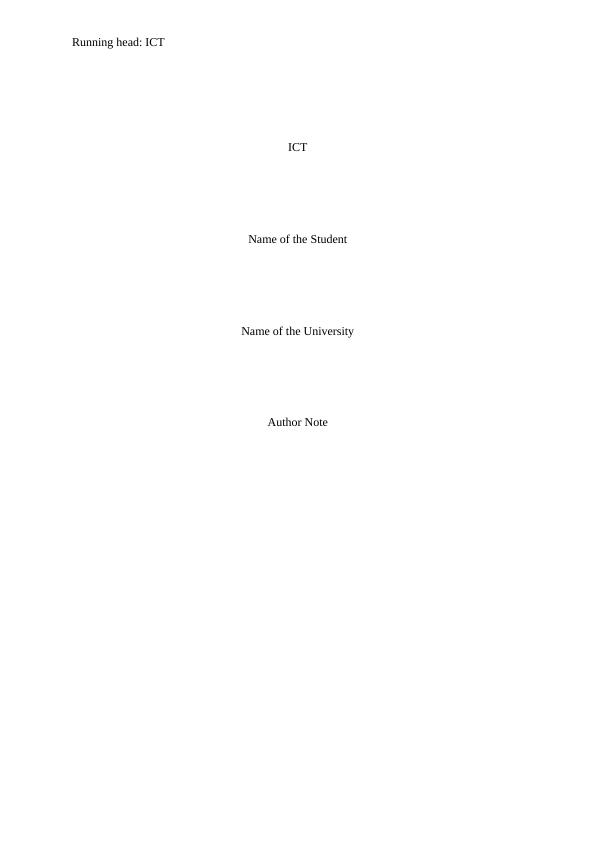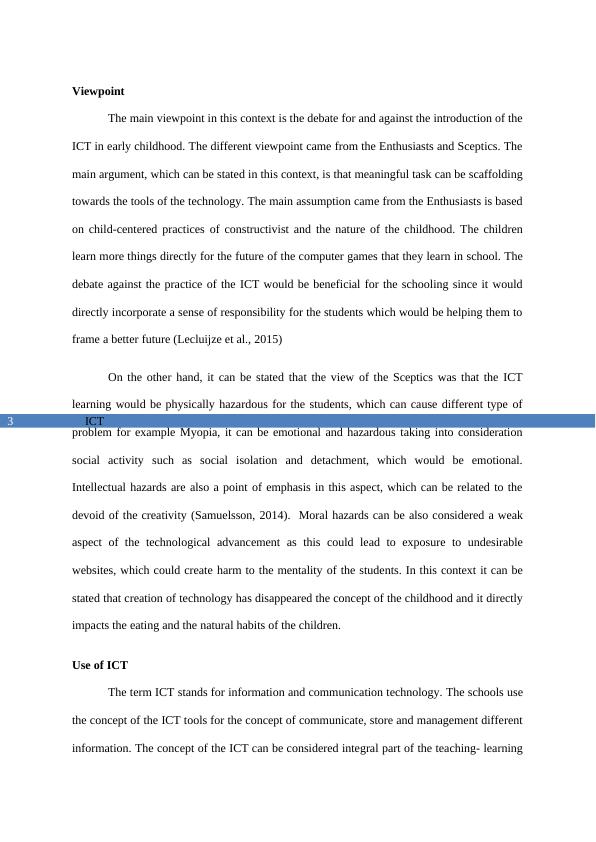Ask a question from expert
ICT (Information and Communication Technology) : Assignment
Contrast the perspectives of proponents and dissidents with regard to the introduction of ICT in early childhood, examine and interpret the possible positive and negative affordances, and analyze how direct and indirect interaction support children’s learning with the use of technology.
7 Pages1020 Words117 Views
Added on 2021-04-17
ICT (Information and Communication Technology) : Assignment
Contrast the perspectives of proponents and dissidents with regard to the introduction of ICT in early childhood, examine and interpret the possible positive and negative affordances, and analyze how direct and indirect interaction support children’s learning with the use of technology.
Added on 2021-04-17
BookmarkShareRelated Documents
End of preview
Want to access all the pages? Upload your documents or become a member.
Teaching Science and Technology in Early Childhood Education
|19
|2873
|74
The Role of Parents in Enhancing Children's Education: A Debate Analysis
|6
|1366
|382
EARLY CHILDHOOD EDUCATION.
|10
|2789
|2
Early Childhood Development Assignment
|11
|2863
|1285
Theories and Principles of Learning
|10
|3696
|63
Information and Communication Technology (ICT) : Assignment
|7
|1940
|64


